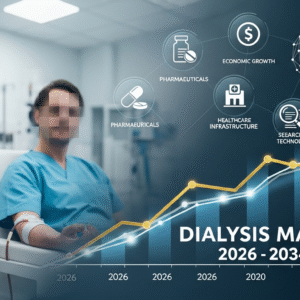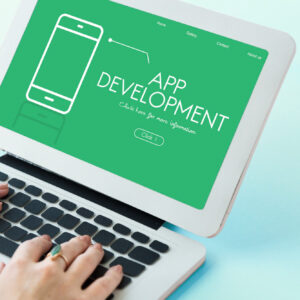Healthcare today feels different. Patients want a better experience, such as shorter waits, easier communication, and treatment that feels personal. Providers are also juggling tighter schedules and rising expectations. Keeping up means finding smarter ways to work, and technology now plays a huge part in that.
A CRM for healthcare brings all the moving parts together. And while traditional CRMs were built for sales, healthcare versions are designed for patient relationships and clinical workflows. They organize data, streamline communication, and simplify operations so providers can focus on care instead of catching up on paperwork.
What a Healthcare CRM Actually Does
A healthcare CRM acts as a secure digital hub that connects every step of patient care. It combines appointment tracking, communication tools, and clinical notes in one place, helping staff stay organized and informed.
Unlike generic CRMs, it’s built for healthcare teams who need compliance, accuracy, and coordination. Patient histories, treatment timelines, follow-up reminders, and secure messages all live in one system. That structure helps eliminate redundant work while improving the flow of information between doctors, nurses, and administrative staff.
How a CRM Improves Care and Operations
When people talk about healthcare technology, it’s easy to picture complex systems and endless screens. But a CRM for healthcare is one of those tools that actually makes life simpler for both providers and patients.
Instead of juggling separate systems for scheduling, billing, and patient records, teams can use one platform that ties it all together. That shift changes how clinics operate day to day and how patients experience their care.
Here’s how a CRM quietly transforms the entire process.
Enhanced Patient Engagement
A CRM helps teams stay connected with patients before, during, and after each visit. Automatic reminders, personalized messages, and a record of preferences make patients feel remembered and cared for. That kind of consistency builds trust and keeps communication open.
Streamlined Operations
Anyone who’s worked in a busy clinic knows how much time is lost to phone calls, manual scheduling, and paperwork. A healthcare CRM takes those tasks off everyone’s plate. Appointments, billing, referrals, and task tracking all happen in one system, making it easier for teams to coordinate without constant back-and-forth.
Smarter Data and Analytics
When information is organized in one place, patterns start to appear. Providers can track outcomes, identify patients who need follow-ups, and understand which treatments deliver the best results. Data also helps spot potential risks early and supports continuous improvement in care.
Better Communication
Clear communication keeps care consistent. A CRM connects everyone involved in a patient’s treatment, from doctors and nurses, to specialists and administrative staff. Secure messaging and shared access to notes reduce misunderstandings and keep everyone updated. Patients benefit too, since messages and instructions remain clear and consistent.
Stronger Data Protection
Healthcare data must stay private and protected. The right CRM includes encryption, secure logins, and permission-based access. HIPAA-compliant storage and detailed activity logs provide transparency and accountability for both staff and patients.
Real Stories of CRM in Action
Across healthcare, CRMs are already changing how providers work. A neighborhood clinic can reduce missed appointments by sending automatic reminders. A physical therapy center can improve follow-ups by tracking progress over time. Hospitals use CRMs to coordinate between departments, ensuring no step in a patient’s journey is overlooked.
Even public health groups use CRMs to manage large-scale initiatives like vaccination programs or community wellness outreach. The technology adapts to the need, making healthcare more responsive and connected.
What to Look for in a Healthcare CRM
Choosing the right CRM starts with knowing what matters most. Security and compliance should always come first, including encryption, HIPAA alignment, and defined user permissions. Integration is another key factor. A good CRM connects with electronic health records, lab systems, and even medical devices to keep everything in sync.
Ease of use also matters. Staff should be able to navigate the system without extra training or frustration. Scalable, customizable platforms can grow with your practice, allowing adjustments to match the size, specialty, and pace of your organization. And because technology only works as well as the people behind it, reliable support and training from the vendor are essential for long-term success.
Why Leapify Fits the Healthcare Environment
Leapify brings together technology, privacy, and predictive insights in one platform built for healthcare. Its AI-powered tools simplify scheduling, follow-ups, and communication while keeping data secure and compliant. With intelligent analytics, providers can identify patient needs earlier, improve workflows, and manage operations with greater precision.
Healthcare organizations looking for a trusted CRM for healthcare providers will find in Leapify the solutions designed for safe, efficient, patient-centered operations.
Overcoming Common Challenges
Change often comes with hesitation. Some staff may worry about learning a new system, which is why training and gradual adoption make a big difference. Building confidence with smaller process changes first helps teams see the benefits quickly.
Security is another concern. The best approach is to choose a vendor with transparent data protection policies and clear compliance certifications. Finally, integration can take time, especially with older systems. Working with a provider that understands healthcare environments ensures that data flows smoothly and securely between platforms.
The Future of Connected Healthcare
A healthcare CRM can transform both patient care and daily operations. It helps teams stay organized, informed, and proactive while improving how patients experience care. From fewer missed appointments to more meaningful interactions, the benefits reach every corner of a medical practice.
For providers ready to work smarter and deliver care that feels both personal and efficient, Leapify offers a trusted path forward. Try out Leapify today to see how a dedicated healthcare CRM can enhance your workflows and strengthen every patient relationship.





